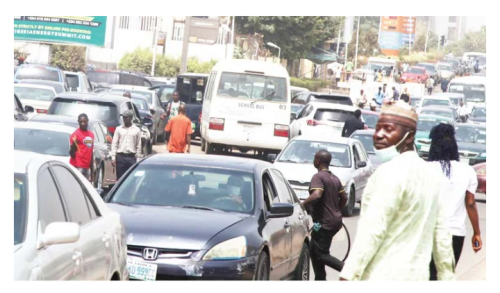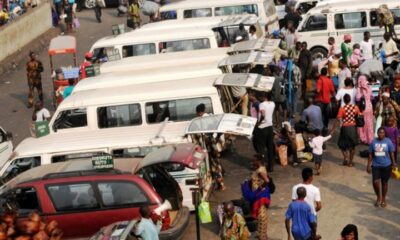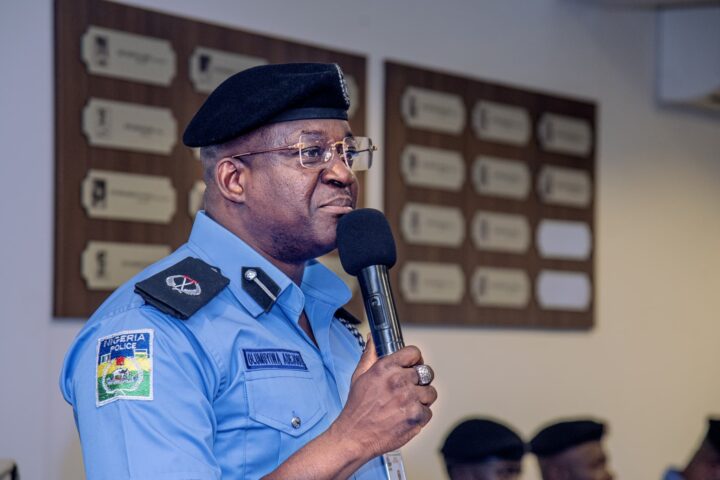A lot of gas stations in Nigeria are still not dispensing Premium Motor Spirit, popularly called petrol, this has worsened the nationwide fuel scarcity and paralysed activities across the country on Wednesday.
In Abuja, Lagos, Rivers, Bayelsa, Kwara, Nasarawa, Niger, Kano, Ogun states, among others, queues by motorists for petrol greeted the very limited number of filling stations that dispensed the commodity.
The crisis caused by the adulterated petrol imported into Nigeria about two weeks had led to a hike in the cost of the commodity in many states, as black marketers of the PMS also cashed in on the development.
In Abuja and parts of Niger and Nasarawa, for instance, black marketers sold petrol for as high as N6,000 for 10 litres, translating to N600 per litre.
The cost of transport fares skyrocketed nationwide, and many small businesses were grounded due to the inability of the owners of the ventures to access petrol to run their activities.
Meanwhile, oil marketers also restated on Wednesday they were making moves to start blending the adulterated PMS since the Nigerian National Petroleum Company Limited had yet to recall all the contaminated products.
The NNPC had stated on Tuesday it was working hard to address the situation, as it noted that over 2.3 billion litres of PMS would arrive in the country between now and the end of February 2022.
This, it said, would restore sufficient volume and above the national target of 30 days.
“As of today, the NNPC has over one billion litres of petrol in stock, and the PMS being dispensed today at the various filling stations in the country is safe,” the oil firm said in a statement issued in Abuja.
But despite the NNPC’s promises, the queues across the country persisted and the cost of petrol continued to rise above the official rate of N165/litre.
In Ogun State, residents and traders in Abeokuta and some parts of the state lamented the hardship experienced over the scarcity of fuel in the state.
Most of the filling stations in the capital and its environs were either shut to customers or increased the pump price of the commodity.
Many residents and traders complained that they could not carry out their business activities due to the scarcity, which also forced an increase in transport fares and commodities.
In Kwara State, the scarcity paralysed economic activities in Ilorin, the state capital, as most commercial and private vehicles were off the roads with many commuters stranded.
The few filling stations that dispensed fuel were jam-packed by motorists in Ilorin, as transport fare increased by about 300 per cent for intra-city transportation, while inter-city fares doubled.
Meanwhile, the anti-vandal unit of the Nigeria Security and Civil Defence Corps which went out to monitor the fuel situation on Wednesday said that it had ordered petrol stations that hoarded fuel to dispense it.
In River State, the scarcity of petrol in Port Harcourt and other parts of the state caused a sudden rise in transport fares, leaving many commuters stranded.
Findings by our correspondent on Wednesday showed that petrol sold for N250 per litre in some filling stations, while long queues were seen in the few outlets that dispensed products.
READ ALSO: Abba Kyari May Spend More Days In Detention As NDLEA Goes To Court
As a result, fewer vehicles were seen on the roads, while commuters were seen trekking to their destinations.
In Plateau State, the scarcity that resurfaced in Jos in the past one week persisted and grew worse on Wednesday with many motorists and residents lamenting the situation.
Findings also showed that the price of the product had increased to between N175 and N200 per litre in the few filling stations that had the products.
Many commuters were also stranded on various roads, as a result of very few available taxi drivers plying the routes.
A motorist, Giwa Johnson, said he spent over eight hours in the queue trying to buy fuel at a filling station along the Yakubu Gowon Way in Jos, describing his experience as terrible.
In Bayelsa State, the fuel scarcity also hit several towns and queues grew at filling stations around Yenagoa, the capital city, and its environs on Wednesday.
Checks indicated that the shortage of petrol had occasioned an increase in the pump price of petroleum products in the state.
Some of the petrol stations along the ever-busy Mbiama-Yenagoa Road and the Isaac Boro Expressway did not open for business on Tuesday and Wednesday, as consumers suspected that they might be hoarding the product.
A few black markets were, however, sighted along the Isaac Boro Expressway selling a 10-litre jerrycan of fuel for N2,000 and 20 litres for N4,000.
In Benue State, the fuel scarcity continued on Wednesday as black marketers took over the streets of Makurdi, the capital city.
Our correspondent who went round the major areas of the state capital reported that most fuel stations had no product to dispense. At Jenny, Gabrow and Rain Oil located within Makurdi metropolis, long queues were observed, while some other fuel stations were under lock and keys.
A motorist, who simply identified herself as Charity, said she had been on the queue at Jenny filling station for two hours and had yet to get the product at the time she spoke to our correspondent.

 BIG STORY3 days ago
BIG STORY3 days ago
 BIG STORY4 days ago
BIG STORY4 days ago
 BIG STORY5 days ago
BIG STORY5 days ago
 BIG STORY4 days ago
BIG STORY4 days ago
 BIG STORY4 days ago
BIG STORY4 days ago
 BIG STORY2 days ago
BIG STORY2 days ago
 BIG STORY3 days ago
BIG STORY3 days ago
 BIG STORY3 days ago
BIG STORY3 days ago
























